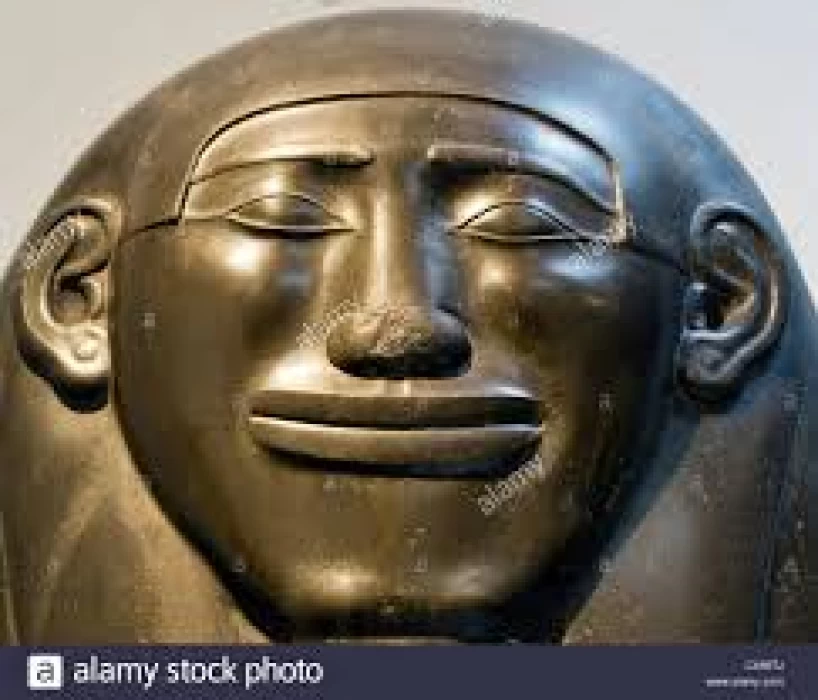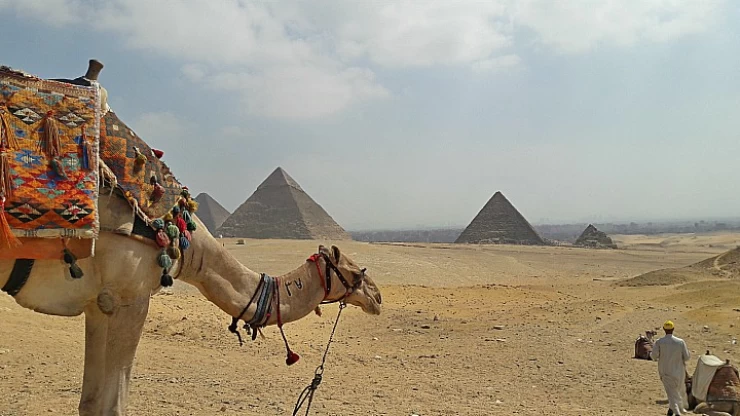
The 27th Dynasty in Ancient Egypt
The Twenty-Seventh Dynasty in Ancient Egypt
A far more ambitious campaign against the Ethiopians, in which Cambyses participated in person, resulted in a complete failure due to the lack of adequate preparation, while an expeditionary force, was sent across the desert to the oasis where two centuries later Alexander the Great would have
consulted the oracle of Amun (Siua), was overwhelmed by a sandstorm and disappeared (what remains of this army seems to have been found just recently in the sands). Cambyses' anger at the failure of these enterprises was limitless and is said to have caused him to suffer a crisis of madness, but at least the whole of Egypt had been conquered.
According to Herodotus, Cambyses was a monster of cruelty and impiety whose madness culminated in the killing of the sacred ox Api, which however is very unlikely to judge from the testimonies found in the Serapeum, where two of these sacred animals are buried during his reign.
On the sarcophagus of one of them the inscriptions say it was dedicated to him by Cambyses himself. A Hebrew document of 407 BC indeed speaks of the "destruction of all the temples of the Egyptian gods" made at the time of Cambyses, but at that time the bad reputation of the king had had plenty of time to spread, while it may be that all the damage he caused was limited to the revocation of the official concessions of materials, previously customary.
n 522 BC, upon Cambyses' return to Asia, Egypt remained entrusted to the satrap Ariande, who was later suspected of infidelity and sentenced to death.
Meanwhile, Gaumata, of the people of the Magi, had made himself believe the true Smerdi returned to life, obtaining a vast following in all the Persian provinces. Smerdi was Cambyses' brother, who had died years earlier. There are conflicting reports on Cambyses' death; probably the incident occurred while he was returning home to fight against the suitor.
When Cambyses died, the throne passed to Darius I, son of Hystaspes, and belonged to the family of Cyrus. During its thirty-six years of reign (521-486 BC) the Persian empire was organized with consummate art of government, but relatively little is known about the Egyptian events of that period. The first years were committed to stifling the riots and unrest following the assassination of Gaumata with extreme ferocity, and only in about 517 BC did Darius travel to Egypt.
Of great importance, however, because it reveals its interest in the ancient civilization which fell under its dominion, is an order sent to the satrap of Egypt in the third year of his reign, with the instruction to gather the wisest men of the country, chosen among the military, priests, and scribes, to have a compilation of all Egyptian laws from the beginning until the year 44 of Amasis; task that kept them busy until the nineteenth year of the reign of Darius. This fact would justify Diodorus who places Darius among the greatest legislators in Egypt, the Nile, and the Red Sea.
Neko II had been forced to abandon the project, but Darius not only repaired the canal in all its length but also managed to pass twenty-four ships laden with tributes to Persia. The commemorative steles were erected here and there along the banks of the canal; the inscriptions in hieroglyphic and cuneiform characters are in a deplorable state, but their content is indisputable. Various testimonies show that Darius in the government of Egypt wisely tried to pose as a legitimate pharaoh by continuing the work of the Saitic predecessors.
In the last 20 years of the reign of Artaxerxes I and for all 20 of the reign of Darius II there is a complete void regarding Egypt, which was not to return to the Middle East scene until after the ascent to the throne of Artaxerxes II, sixty years later, amidst the turmoil of the events that followed.
Although he has never been to Egypt, it seems that Darius II ordered the construction of some buildings in the temple of Hibis in the oasis of Kharga.
The Persians conquered Egypt and ruled it for nearly 124 years. The Kings of this family are Persians:
- Cambyses
- Darius I
- The first Causes Islands

















